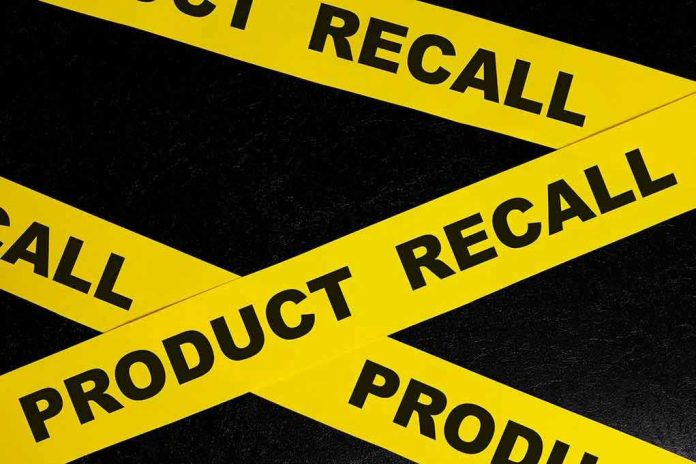
When the food giants start yanking hundreds of thousands of pounds of your family’s groceries off the shelves, you know someone, somewhere, has royally screwed up—again—and this time, it’s Kraft Heinz recalling Oscar Mayer turkey bacon over listeria fears, just in time for your July cookout plans to get torched by Big Food’s latest blunder.
At a Glance
- Kraft Heinz recalls over 367,000 pounds of Oscar Mayer turkey bacon due to listeria contamination risk
- No illnesses reported, but risk discovered during internal lab tests, not by regulators or consumer complaints
- Recall comes amid a nationwide spike in listeria-related food recalls and rising regulatory scrutiny
- Affected products distributed nationally and internationally, putting countless households at risk
Kraft Heinz Recall: More Than Just a Missed “Sell By” Date
On July 3, 2025, Kraft Heinz—yes, the home of Oscar Mayer and their “America’s favorite” turkey bacon—announced it was yanking over 367,000 pounds of the stuff from grocery stores across the country. Why? Because their own internal lab tests flagged the risk of listeria contamination, not because any government watchdog or eagle-eyed consumer caught it. If you thought a simple “sniff test” was enough, think again: listeria can lurk in your fridge, defying cold and common sense alike. The recall covers products made between late April and mid-June and shipped everywhere from your local supermarket to the British Virgin Islands and even Hong Kong. That’s what happens when you trust multinational corporations to self-police, all while the government is busy handing out billions for border barricades and ignoring the basics—like making sure the food supply isn’t a game of Russian roulette.
Kraft Heinz says not a single illness has been reported—yet. But how comforting is that, really, when the same company admits this isn’t even the first time the industry has dealt with this bacterial menace? In 2024 alone, there were 65 listeria-related recalls, a jump from the previous year, including one infamous Boar’s Head outbreak that claimed nine lives. The status quo: corporations “investigate,” the USDA issues a public alert, and the burden falls on—you guessed it—the American consumer to check their fridge, call a hotline, and hope for the best. The company’s official line is that they’re “working actively” to pull the product and “limit exposure,” but for families who just want trustworthy groceries, that’s cold comfort.
Food Safety: All on You, While Big Food Walks Away
This recall is just the latest in a grim parade, as the food industry keeps tripping over the same listeria problem—because why invest in real oversight or transparency when marketing budgets are so much more fun? Kraft Heinz will take a short-term hit, sure, but history shows these giants bounce back faster than you can say “corporate accountability.” The USDA will issue a stern warning, stores will dump the tainted bacon, and the rest of us will just keep our fingers crossed that next week’s recall isn’t chicken nuggets or hot dogs. Meanwhile, the truly vulnerable—pregnant women, the elderly, anyone with a weakened immune system—are left to gamble with their health every time they shop the deli aisle. The food safety “system” expects you to be the final line of defense, cleaning your fridge like a Hazmat site and memorizing UPC codes, while the overseers in Washington eliminate advisory committees and pat themselves on the back for “streamlining” inspections. It’s a system tailor-made for plausible deniability and shifting responsibility—just the way the corporate lobbyists like it.
Retailers, already battered by inflation and supply shocks, now have to scramble to yank affected products and manage the fallout with customers. The cost? Lost sales, wasted inventory, and, of course, more “sorry for the inconvenience” signs. Kraft Heinz, for its part, gets to tout its proactive recall as a badge of honor, hoping consumers will forget all about it by Labor Day. Regulators claim improved detection is partly why recalls are up, but the fact remains: the food chain is only as strong as its weakest link, and too often, that link is a boardroom decision about cutting corners on safety and inspections.
What This Says About American Priorities—And Who Pays the Price
While Congress bickers over border security and spends billions on walls and “enforcement funds,” the basic act of buying food becomes a risk assessment exercise. The real tragedy here isn’t just a ruined BLT; it’s the slow erosion of trust in the brands and institutions that are supposed to protect American families. The regulatory state is quick to promise action after each crisis, but the cycle repeats because the incentives—corporate and political—are all wrong. Industry “experts” call for more testing and sanitation, but how often does that mean passing the costs down the line, or worse, expecting you to do the government’s job in your own kitchen? This is what happens when oversight is piecemeal, advisory committees are axed, and the only thing growing faster than the recall list is the list of excuses from Big Food and Big Government.
American families are already squeezed by inflation, rising grocery bills, and a government that seems more interested in photo ops than real solutions. Now, the simple act of making breakfast is another reminder that, when it comes to safety and accountability, you’re on your own. Welcome to modern America, where you pay more for less—less safety, less reliability, and a whole lot less faith in the people running the show.







